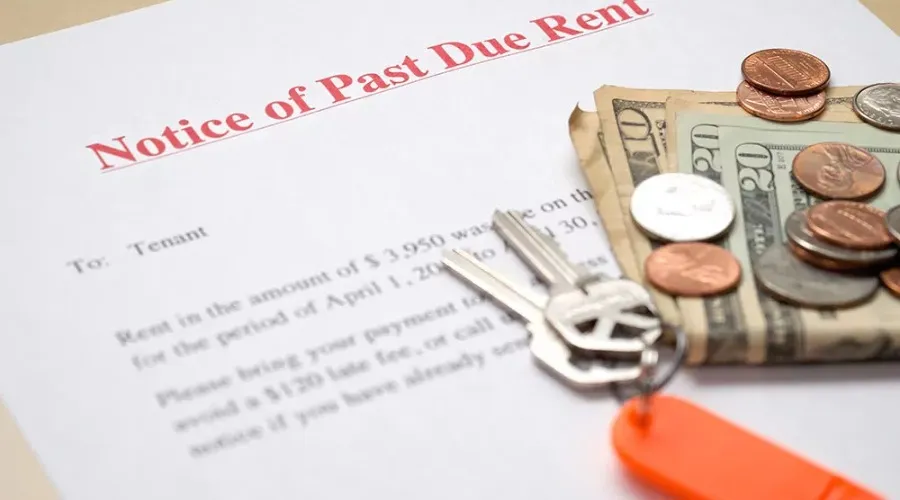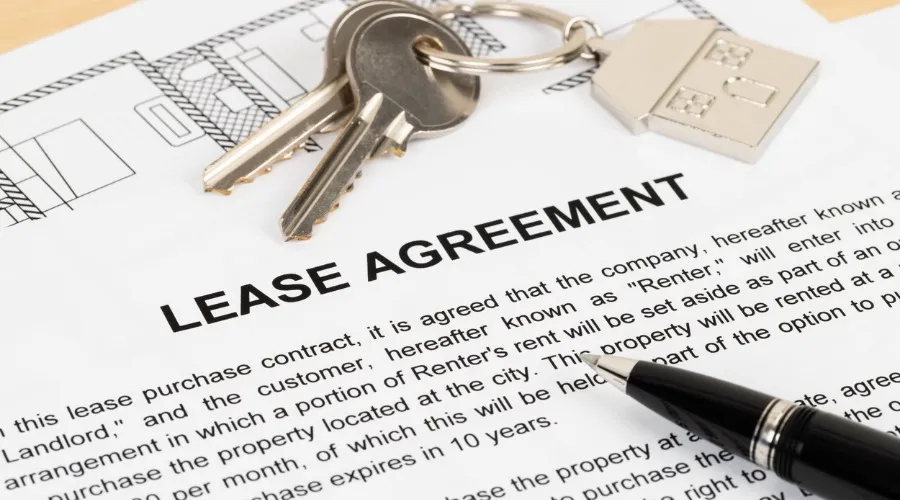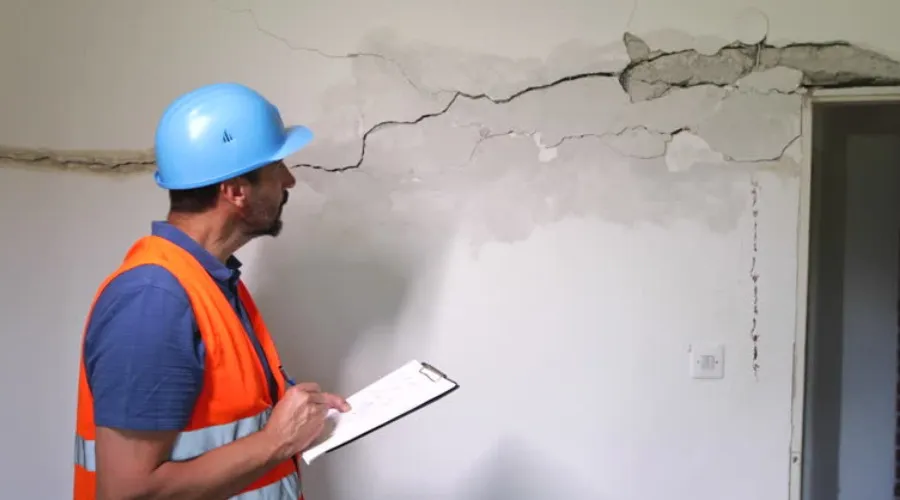The eviction process in Tennessee requires landlords to follow strict legal steps, from filing a detainer warrant to obtaining a Writ of Possession. Skipping procedures can lead to costly delays or even dismissal of the case. In this guide, LeaseRunner will help Tennessee landlords get clear guidance and tools to manage notices, stay compliant, and protect their rental property with confidence.
Tennessee’s SB 0292: Expedited Commercial Eviction Process
Learn how Tennessee’s new law reshapes the eviction process for commercial property owners and what it means for landlords, tenants, and unauthorized occupants. For a full background on state rental rules, you can explore Tennessee landlord-tenant laws.
What is Senate Bill 0292?
Tennessee Senate Bill 0292 (SB 0292), paired with House Bill 0216 (HB 0216), introduces a faster way for property owners to remove unauthorized individuals from commercial real estate. The law, now Public Chapter 90, took effect on July 1, 2025, and amends Tennessee Code Annotated (TCA) Titles 29 and 66.
The bill addresses a growing problem: unlawful occupation of vacant commercial property, such as squatters taking over empty buildings or lots. These situations often lead to lengthy disputes, lost rental income, and potential property damage. By creating an expedited eviction procedure, the law gives owners a practical tool to regain control without the delays of a standard unlawful detainer lawsuit.
For residential rentals, however, landlords must still comply with Tennessee eviction laws, which require a court process.
How the process works:
- The property owner (or their agent) files a verified Complaint to Remove Persons Unlawfully Occupying Commercial Real Property with the county sheriff.
- The complaint must confirm key conditions, including that the occupant was directed to leave, is not a lawful tenant, and has no family relationship with the owner.
- Once reviewed, the sheriff can issue a notice to vacate. If the person fails to comply within a short window (24–72 hours, depending on local practice), law enforcement may remove them—without the need for a court hearing.
To avoid confusion, landlords with residential leases must still use proper documentation, such as lease agreement templates and file detainer warrants in court.
Who does SB 0292 apply to?
SB 0292 applies exclusively to commercial real property—such as office buildings, warehouses, and vacant lots zoned for business use. It is designed for cases where someone enters or remains on the property without permission and refuses to leave.
The law does not apply to residential properties. It also excludes:
- Current or former tenants with a valid lease agreement.
- Immediate family members of the property owner.
- Cases are already tied up in litigation between the owner and an authorized party.
For residential rental properties, however, landlords must still follow the existing unlawful detainer and eviction process in Tennessee, which includes court hearings and compliance with the Uniform Residential Landlord and Tenant Act (URLTA).
Impact on Landlords & Tenants
For commercial landlords, SB 0292 is a major advantage. It shortens the time and expense involved in removing squatters or unauthorized occupants. But for residential tenants, protections remain strong, since the standard eviction process in Tennessee still applies to ensure due process rights.
For tenants, protections remain strong under Tennessee eviction laws, ensuring that anyone with a valid lease cannot be removed under this expedited procedure. Legitimate tenants under a signed lease cannot be removed under this expedited process. They remain covered by Tennessee’s standard eviction laws, ensuring they still have the right to a court hearing and full legal due process.
Meanwhile, squatters and unauthorized occupants now face quicker removal, which may discourage unlawful entry altogether. That said, safeguards exist to prevent misuse, as property owners must submit a sworn complaint and meet strict eligibility criteria.
Legal Grounds for Eviction in Tennessee
Understanding the legal reasons a landlord can evict a tenant is essential. Nonpayment of rent, lease violations, illegal activity, and health or safety hazards all trigger the eviction process in Tennessee.
1. Nonpayment of Rent
One of the most common eviction grounds is failing to pay rent on time. In Tennessee, rent is officially considered late five days after the due date unless the lease provides a longer grace period.
At that point, the landlord must serve a 14-day Notice to Pay or Quit, which gives the tenant two weeks to either pay the overdue rent or move out. If the tenant pays the full balance within those 14 days, the eviction process ends and the lease continues as normal. For example, if rent is due on the 25th, it becomes late after the 30th.

2. Lease Agreement Violations
Another legal basis for eviction in Tennessee is breaking the terms of the lease or rental agreement. If the issue can be corrected, the landlord serves a 14-day Notice to Comply; if not, a 14-day Notice to Quit is required. Failure to comply or vacate allows the landlord to file an eviction lawsuit. Common violations include keeping unauthorized pets, damaging property, smoking in non-smoking units, overcrowding, or misrepresenting the need for a service animal.
3. Illegal Activity
Tennessee law allows landlords to take quick action if illegal activity occurs on the rental property, including criminal conduct such as violence, drug use, or actions that endanger the health and safety of neighbors. In these cases, the landlord may serve a 3-day Notice to Quit, and tenants are not given an opportunity to cure the violation. If the tenant does not vacate within three days, the landlord can immediately file for eviction in court.
4. Health and Safety Violations
Landlords are also permitted to evict tenants who create health or safety hazards in violation of housing or building codes.
- Notice requirement: A 3-Day Notice to Quit must be issued.
- Examples: Leaving garbage that attracts pests, damaging plumbing or electrical systems, or otherwise making the unit unsafe to occupy.
If the tenant fails to leave within the notice period, the landlord can proceed with eviction through the courts.

5. Non-Renewal of Lease After Expiration
If the lease term ends and the tenant does not move out or sign a renewal, the landlord may issue a Notice to Quit based on the type of tenancy. For tenants on a month-to-month lease, the landlord must provide a 30-Day Notice to Quit. For tenants on a week-to-week lease, a 10-Day Notice to Quit applies. If the tenant remains in the rental after the notice period expires, the landlord may file for eviction.
Serving an Eviction Notice in Tennessee
Before filing in court, Tennessee landlords must serve the correct eviction notice. The type of notice depends on the reason for eviction and whether the rental is residential or commercial. Getting this step right is critical—mistakes can delay the eviction process in Tennessee or even invalidate the case.
Types of eviction notices
Tennessee law requires different notices based on the reason for eviction:
- 3-day notice to quit – For serious issues like drug-related activity, violence, or health and safety threats. No cure is allowed; tenants must vacate within three days.
- 14-day notice to pay or quit – For nonpayment of rent. Tenants have 14 days to pay overdue rent or move out.
- 14-day notice to comply or quit – Used for curable lease violations (e.g., property damage beyond normal wear and tear). Tenants have 14 days to fix the issue or vacate.
- 30-day notice to quit – For other violations, ending a month-to-month lease, or non-renewals. Provides 30 days to leave.
For commercial leases, the timeline usually ranges from 3 to 30 days, depending on the lease terms and breach type. If a fixed-term lease ends and is not renewed, no notice is required.
Methods of serving the notice
Eviction notices must be in writing, but Tennessee law allows some flexibility in how they are delivered:
- Personal delivery to the tenant or an adult household member.
- Certified or registered mail (return receipt requested).
- Posting on property: If personal service fails after multiple attempts, the notice can be posted on the front door of the rental property by the sheriff or constable. This must be accompanied by mailing a copy to the tenant.
Landlords are generally encouraged to use a third party (like a process server or sheriff) to avoid confrontation. A new update under SB 0292 (effective July 1, 2025) allows commercial property owners dealing with unlawful occupants to file a complaint directly with the sheriff, who then serves a notice to vacate within 24–72 hours. Proof of service—such as a receipt or affidavit—is essential before moving forward with the court.

Timelines for Tenant response
How long a tenant has to act depends on the type of notice:
- 3-day notices: Tenant must move out within 3 days, no cure option.
- 14-day notices: Tenant has 14 days to pay rent or fix the violation. Repeat violations may end the lease without another cure period.
- 30-day notices: Tenant has 30 days to vacate or correct other issues.
If the tenant does not comply, the landlord can file an unlawful detainer lawsuit. On average, the Tennessee eviction process takes 4–8 weeks. For unlawful commercial occupants under SB 0292, the response period is much shorter—only 24–72 hours.
Differences for commercial properties
Commercial evictions in Tennessee follow many of the same steps but fall outside the Uniform Residential Landlord and Tenant Act (URLTA). Lease contracts typically control notice periods and remedies.
A major 2025 change (SB 0292) creates an expedited removal process for squatters and unlawful occupants in commercial properties. Instead of waiting through traditional notice periods, landlords can file a verified complaint with the sheriff, who serves a short notice to vacate. This bypasses the slower court-based eviction timeline.
For paying commercial tenants, however, the normal 14- or 30-day notices and court filings still apply. Tenants may also raise defenses like lease disputes or claims of constructive eviction.
Step-by-Step Eviction Process in Tennessee
If you’re a landlord in Tennessee, understanding how the eviction process in Tennessee works—and the legal procedures that must be followed—is critical to avoiding costly mistakes. Below is a clear breakdown of each stage, from serving the first notice to regaining possession of your rental unit under Tennessee eviction law.
1. Landlord serves an eviction notice
The eviction process starts when a landlord gives the tenant a Tennessee notice to quit. This written notice tells the tenant what violation occurred and how many days they have to fix the issue or move out.
The type of notice depends on whether the rental property is in a county covered by the Uniform Residential Landlord and Tenant Act (URLTA) (counties with populations over 75,000) or under the Tennessee Code (counties with fewer than 75,000 residents).
In non-URLTA counties, the legal procedures allow some notices to be 30 days to quit (for lease violations) or 3 days to quit (for serious noncompliance such as drug-related activity).
2. Filing an eviction lawsuit (forcible entry and detainer)
If the tenant does not comply with the notice, the landlord’s next step is to file an eviction lawsuit, also known as a forcible entry and detainer action. This must be filed in the General Sessions Court (or Circuit Court, though that requires additional bond and security). Filing fees vary: around $42 in General Sessions Court and $225 in Circuit Court.
3. Court issues and serves a summons
Once the lawsuit is filed, the court begins the formal court procedures by issuing a summons (also called a warrant) requiring the tenant to appear in court. The summons is usually served by the county sheriff, either in person or by posting it on the rental unit and mailing a copy if personal service fails. Service fees range from $10–$40, depending on the method used.
4. Court hearing and judgment
At the eviction hearing, both landlord and tenant present evidence, such as the lease agreement, notices, and proof of violation. If the judge rules in favor of the landlord, the court will issue a Judgment for Possession.
After a 10-day waiting period, the court may issue a Writ of Possession, which legally authorizes the removal of the tenant. The tenant can appeal during this time, but must do so before the writ is enforced.
5. Sheriff Executes the Writ of Possession
Finally, the sheriff serves and enforces the writ, physically removing the tenant from the rental property if necessary. Once this happens, the landlord regains legal possession of the unit. There is usually a $40 fee for service and $40 for execution of the writ.
Tennessee Eviction Timeline & Costs
Evicting a tenant in Tennessee involves multiple legal steps. Each stage in the eviction process in Tennessee has its own timeline and potential expenses, and the entire process typically takes 30 to 60 days from start to finish. The table below summarizes the five main steps, including costs for both the General Sessions Court and the Circuit Court.
Required Documents for a Smooth Eviction in Tennessee
Before filing an eviction process in Tennessee, landlords must prepare the right paperwork. Having complete and accurate documents is essential to proving your case and avoiding unnecessary delays in court.
Written Lease Agreement
The lease agreement is the foundation of the landlord–tenant relationship. A signed copy outlines rent amounts, payment due dates, and tenant obligations. It also specifies conditions that may trigger eviction, such as unpaid rent or lease violations.
If no written lease exists, landlords should provide alternative proof—like rent receipts, bank transfers, or written communications—to show the terms of the rental agreement.

Eviction Notice
A valid eviction notice is required before a landlord can file in court. In addition to proper delivery (personal service, certified mail, or posting with proof of service), the notice must include the following elements presented clearly and accurately:
- Written format: The notice must be in writing; oral or informal communication is not legally valid.
- Tenant information and property address: The tenant’s full legal name and the exact rental property address should be listed to identify who the notice applies to.
- Date of notice: The notice must clearly state the date it was issued to establish the compliance timeline.
- Reason for eviction: The grounds for eviction should be explained in plain terms so the tenant understands why the notice was served.
- Time period for compliance: The notice must specify the exact number of days the tenant has to comply with the requirement (such as correcting the issue or moving out).
- Signature of landlord or authorized agent: The document must be signed by the landlord or a legally authorized representative to confirm its authenticity.
- Clear language: The entire notice should be written in straightforward, unambiguous language so the tenant can easily understand the obligations and consequences.
Proof of Notice Service
Courts in Tennessee require landlords to show that tenants were properly notified. Acceptable proof includes a certified mail receipt, a process server’s affidavit, or a sheriff’s return of service. If posting is used, landlords should document it with a signed affidavit or dated photograph. Proper service records ensure the eviction process meets legal requirements.
Eviction Complaint (Detainer Warrant)
Once the notice period ends, the landlord must file a detainer warrant with the General Sessions Court. This complaint details the lease breach, the type of notice served, requests for possession, unpaid rent, and possible damages.
Supporting evidence—such as the lease, notices, and service documents—must be filed with the complaint. Some counties may also require additional forms, such as a civil summons or an affidavit confirming the tenant’s military status.
Evidence of Breach or Damages
Strong evidence helps landlords succeed in court. This may include:
- Rent ledgers or payment records for non-payment cases.
- Photos or videos of property damage.
- Emails, texts, or written notices documenting violations.
- Police reports or witness statements in cases involving illegal activity.
By presenting clear documentation, landlords improve their chances of regaining possession and recovering losses under Tennessee eviction law.

5 Tips to Avoid Eviction Pitfalls in Tennessee
Evicting a tenant in Tennessee can be stressful, but most problems come from simple mistakes. Staying organized helps landlords keep the eviction process in Tennessee on track and avoid expensive setbacks.
1. Follow court rules and deadlines
The Tennessee eviction process requires strict compliance with court procedures. Missing a filing date, submitting the wrong paperwork, or ignoring a notice requirement can force you to start over. Always double-check timelines and confirm your actions align with local landlord-tenant laws.
2. Avoid accepting partial rent payments
If you’ve already filed for eviction, taking even part of the rent could reset the process or weaken your case. Unless a judge or attorney specifically advises otherwise, hold off on collecting rent until the court makes a decision.

3. Keep thorough documentation
Strong records are your best defense. Maintain complete files with lease agreements, payment history, photos of property damage, copies of notices, and written communication with tenants. Supporting statements from other tenants can also help establish a clear pattern of violations.
4. Use property management tools
Modern rental management software can track rent payments, flag delinquencies, and generate time-stamped records. Having organized digital files not only makes court hearings easier but also helps you stay on top of lease compliance in everyday property management.
5. Consider hiring an attorney
While some landlords handle evictions on their own, hiring a Tennessee eviction attorney can save time and stress. An experienced lawyer knows local eviction laws, can represent you in court, and may prevent costly mistakes that delay regaining possession of your rental property.
Conclusion
The eviction process in Tennessee can be more complicated than it seems, especially with additional rules imposed by city and county governments. While state statutes outline the general eviction steps, local ordinances may add stricter requirements for landlords. Because of this, consulting with an experienced eviction attorney is often the safest way to protect your property rights and remain compliant with the law. By understanding Tennessee eviction laws and tenant rights, landlords can approach the process with greater confidence and minimize the risk of delays or legal setbacks.
FAQs
Q1. Can landlords evict without a court in Tennessee?
No. Under Tennessee landlord-tenant law, a landlord cannot remove a tenant without filing a detainer warrant in court. Any form of self-help eviction—like changing locks, turning off utilities, or forcing a tenant out—is illegal and can expose the landlord to liability. To stay compliant, the eviction process in Tennessee must always go through the courts.
Q2. How long does an eviction take in Tennessee?
On average, the eviction process in Tennessee takes about 4 to 8 weeks. The timeline depends on factors such as the reason for eviction (nonpayment of rent, lease violations, or illegal activity), whether the tenant contests the case, and the court’s schedule.
Q3. What if the tenant refuses to leave after judgment?
If a tenant does not vacate after the court issues an eviction judgment, the landlord can request a Writ of Possession. This legal order authorizes the sheriff to physically remove the tenant and return possession of the property to the landlord.



